You might be concerned about whether rose tea leans towards the sweet or bitter side.
Not knowing what to expect from this floral herbal tea can be a tad nerve-wracking.
What if you take a sip and get hit with a bouquet of roses?
Some people might worry that rose tea could taste too flowery for their liking. That’s what I’m here for!
So, what does rose tea taste like?
Rose tea tastes like a delicate blend of floral and slightly sweet notes with earthy, astringent, or delicate tastes of black, green, oolong, or white tea. It’s as if you took a sip from a garden of fresh roses, but not overpoweringly so. It’s light, refreshing, and has a subtle natural sweetness without being too sugary.
But that’s not it..
Keep reading if you want to learn about the taste profiles of different types of rose teas and some great flavor pairings!
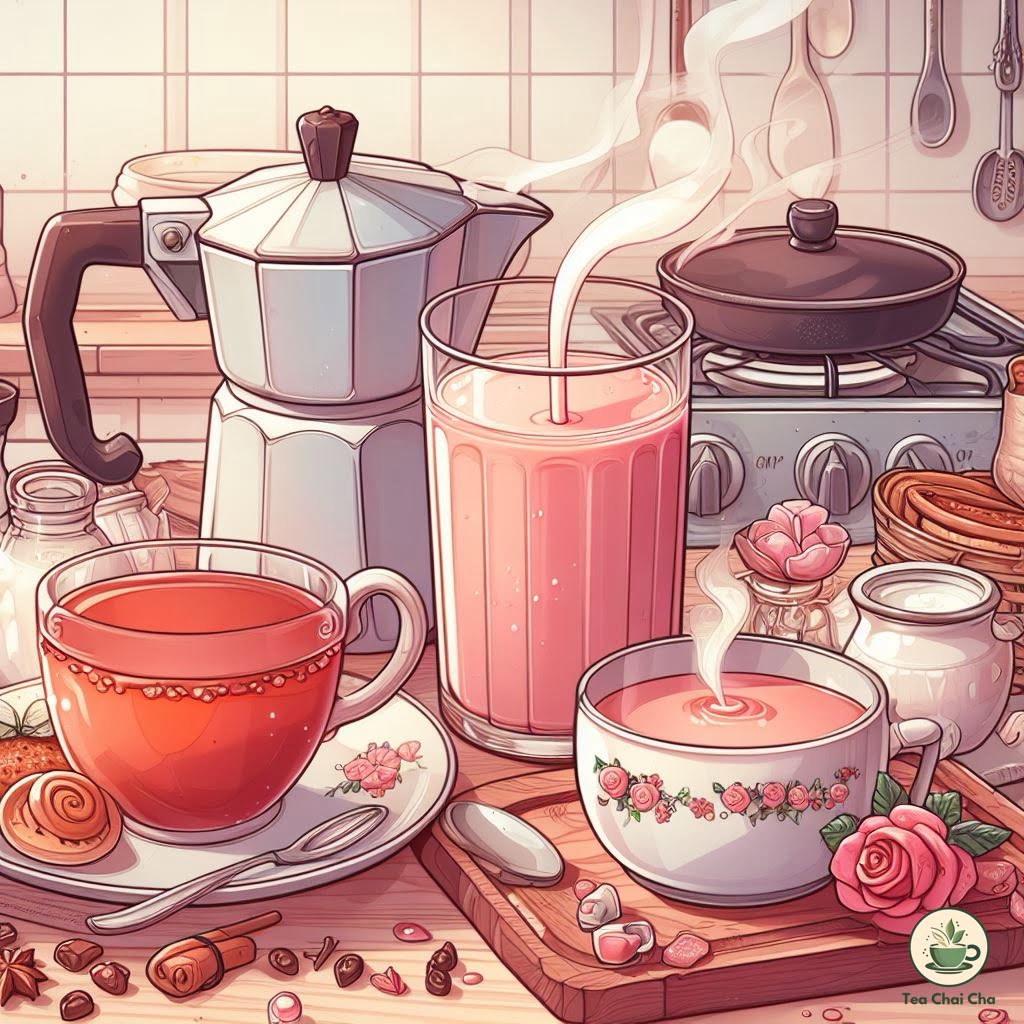
What Does Rose Milk Tea Taste Like?
Rose milk tea has a distinct floral flavor that’s gentle but noticeable.
The taste is a mix of black or green tea and rose petals, offering a slightly sweet and subtly fragrant experience.
You’ll detect a hint of creaminess, thanks to the milk, which balances the floral notes.
It’s like a soothing blend of tea and roses, not too overpowering, but definitely unique.
The sweetness can vary depending on how much sugar you add, but it’s generally a pleasant, refreshing drink.

What Does Rose Bubble Tea Taste Like?
Rose bubble tea has a taste akin to rose milk tea, but with a unique texture.
The flavor predominantly features a floral note, reminiscent of roses, giving it a delicate and somewhat sweet quality.
The texture is where it diverges from regular milk tea.
It contains tapioca pearls, which provide a chewy and bouncy consistency.
The combination of rose flavor and tapioca pearls gives it a one-of-a-kind experience.

What Does Red Rose Tea Taste Like?
While rose tea is most commonly made using Damask rose, you can also use red or pink roses in the brew.
Red Rose Tea will offer you a more floral, silky, taste that is mild and smooth.
You’ll find it to be a balanced blend, combining the gentle bitterness of black tea with a subtle sweetness.
The flavor will be marked by earthy undertones and a touch of maltiness from red roses.
Overall, you’ll experience a refreshing and comforting tea that’s neither too strong nor too mild, making it a classic choice for those who appreciate floral black tea blends.
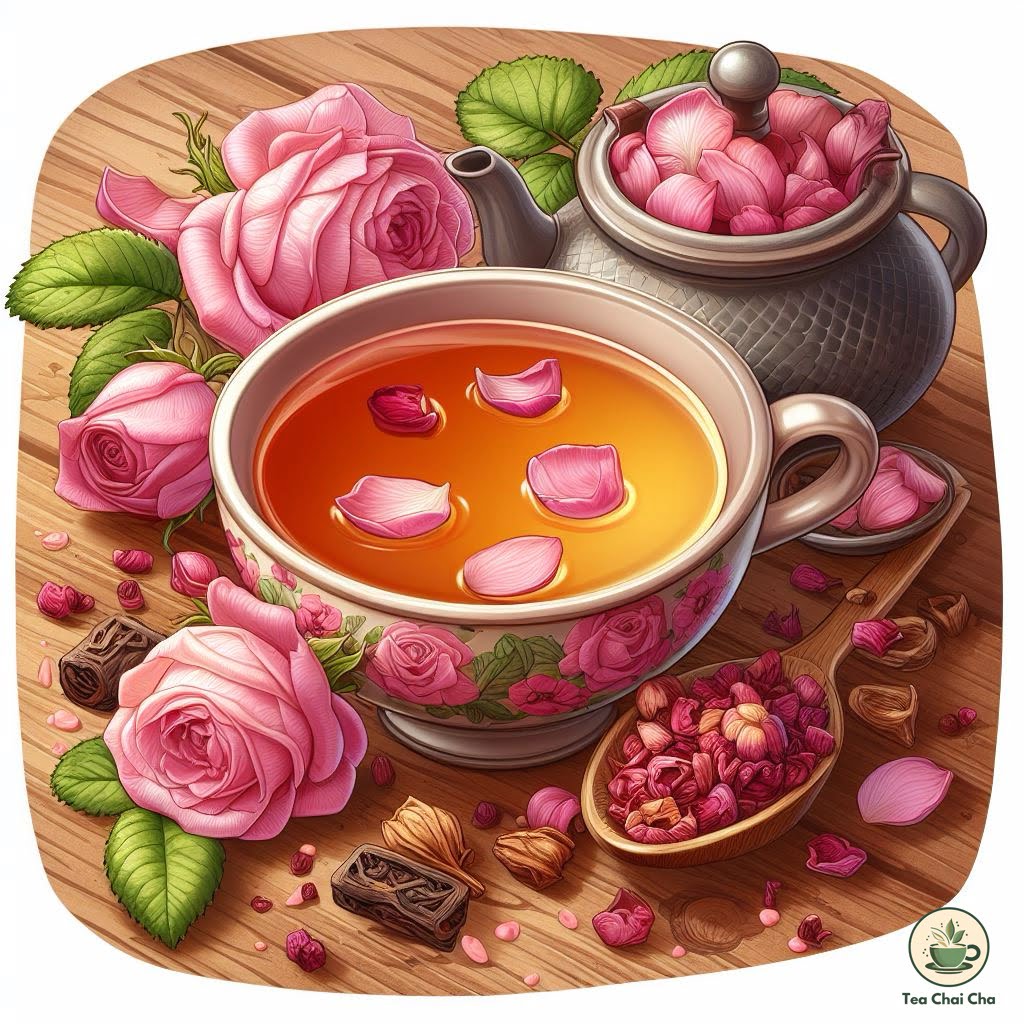
What Does Rose Oolong Tea Taste Like?
Rose oolong tea offers a floral and fruity taste.
The dominant rose aroma lends it a delicate and fragrant quality to complex oolong tea base.
When you take your first sip, you’ll notice a subtle sweetness and a smooth, mellow oolong base.
The oolong tea leaves used in rose oolong tea are typically partially oxidized, giving them a distinctive complexity.
This partial oxidation strikes a balance between the freshness of green tea and the robustness of black tea.
It contributes to the overall taste by providing a slightly earthy and woody undertone.
That’s why rose oolong tea is more nuanced compared to fully oxidized black teas.
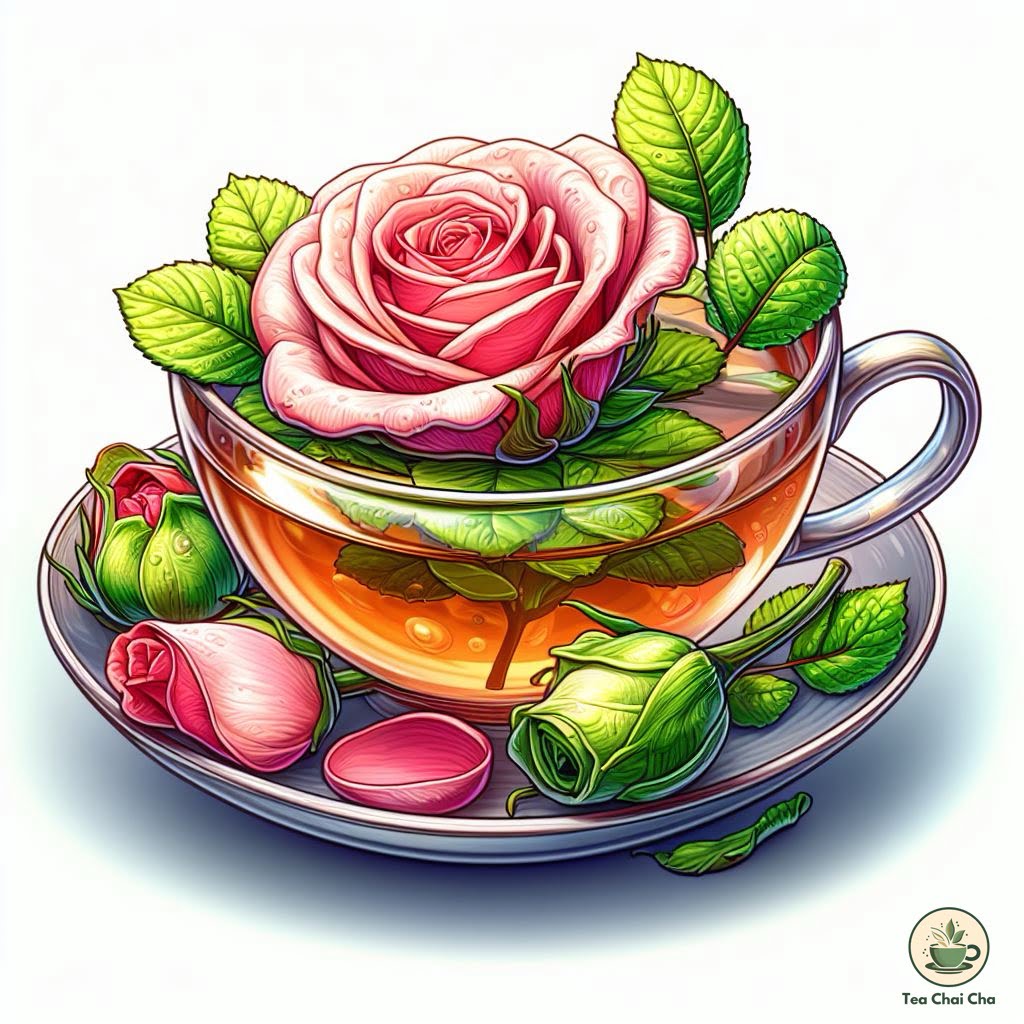
What Does Rose Green Tea Taste Like?
Rose green tea is a fusion of green tea leaves and rose petals.
The taste is a nice blend of green tea’s grassy, earthy notes and the floral, slightly sweet essence of rose.
You’ll experience a mild vegetal undertone from the green tea, with a gentle, refreshing floral overtone contributed by the roses.
The aroma is subtly perfumed, adding to the overall experience.
The rose element is not overpowering just like in other blends; it’s a soft, fragrant touch, making the tea delicately balanced.
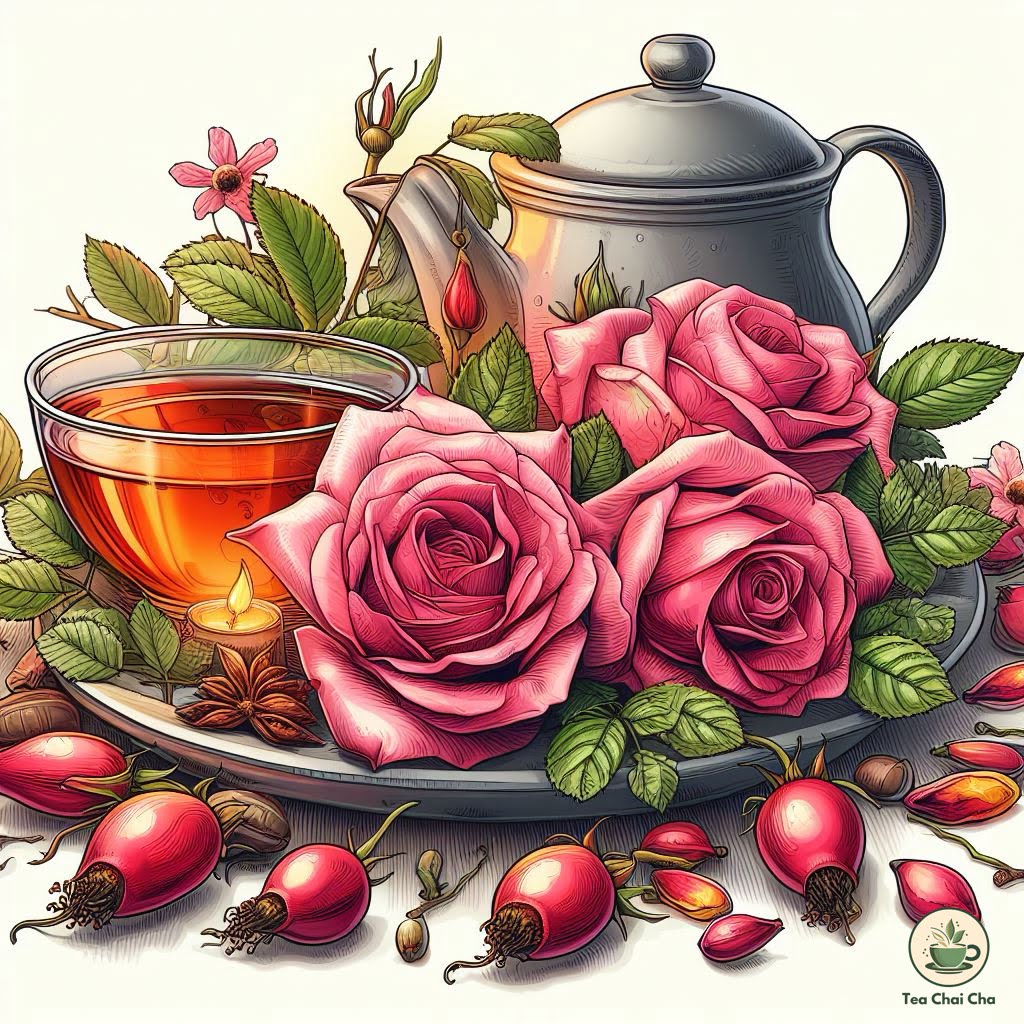
What Does Rose Petal Tea Taste Like?
Rose petal tea, when brewed at home using rose petals, offers a flavor profile that is influenced by several key factors.
The type of rose you choose, the quantity of petals, and the base tea all play a role in determining the taste.
The taste of rose petal tea can vary significantly depending on the rose variety.
Some roses have a more robust and floral flavor, while others are subtler and delicate in taste.
This variation ranges from a mild, slightly sweet floral note to a stronger, more fragrant profile.
The number of petals you use will also influence the tea’s taste.
Using more petals tends to intensify the floral notes and can make the tea slightly sweeter, while using fewer petals will result in a milder, less intense flavor.
The choice of tea base is another crucial factor.
You can brew rose petal tea with different tea bases such as black, green, or white tea.
Each base brings its unique characteristics to the final flavor, ranging from the earthy richness of black tea to the fresh, grassy notes of green tea.
So, Rose Tea Is Made with Rose Petals Only?
No, rose tea isn’t limited to just rose petals; you can also make it using different parts of the rose plant.
While rose petals are commonly used, you can also find rose tea made from rose buds, rose hips, or even rose leaves.
These various components contribute to variations in flavor, aroma, and potential health benefits.
Rose petals are often preferred for their delicate floral notes, while rose buds can impart a slightly more intense taste.
Rose hips, the fruit of the rose plant, provide a subtle tartness, and rose leaves may introduce a grassier element to the tea.
Depending on the blend, you can experience a range of flavors and fragrances, all derived from the versatile rose plant.
Why Does Rose Tea Taste So?
Rose tea has its distinct taste, primarily due to the compounds found in different parts of the rose plant.
The delicate floral notes you taste in rose tea come from the essential oils within the rose petals.
These oils contain compounds like geraniol and citronellol, which give the tea its floral and slightly sweet flavor.
Rose buds, on the other hand, add a slightly more intense taste to the tea.
The compounds present in rose buds, such as eugenol and methyl eugenol, contribute to the tea’s richer and spicier notes.
If you come across rose hip tea, it can have a subtle tartness because of the vitamin C content and the natural acidity of rose hips.
This imparts a refreshing and tangy flavor to the tea.
When rose leaves are used, they can introduce a grassy and herbal element to the tea.
This is because rose leaves contain compounds like chlorophyll, which are responsible for their green, earthy taste.
6 Different Tastes of Rose Tea
I have talked about different types of rose teas, but rose tea doesn’t only have sweet and flowery flavor.
Here’s a range of flavors and tasting notes that you might notice in various rose tea blends.
1. Floral Notes
Rose tea often boasts prominent floral notes, resembling the very essence of fresh roses.
This floral aroma and taste stem from the natural oils found in rose petals.
These oils contain compounds like geraniol, citronellol, and phenylethyl alcohol, which contribute to the tea’s delicate, flowery character.
2. Earthy Undertones
Some rose teas carry earthy undertones that add depth to their flavor profile.
These notes are a result of the terroir in which the roses are grown.
Soil composition, climate, and other environmental factors influence the tea’s flavor.
Roses grown in soils rich in minerals might offer subtle earthiness, grounding the tea’s taste with a mild, earthy resonance.
3. Sweet and Fruity Hues
In certain varieties, you may discover sweet and fruity hints within your rose tea.
This is due to the sugars naturally present in rose petals.
As the tea steeps, these sugars dissolve, creating a pleasing sweetness reminiscent of ripe fruits.
You might notice subtle nuances of strawberries, raspberries, or even a hint of honey, all courtesy of the rose petals’ natural composition.
4. Citrus Zest
Rose tea occasionally showcases citrusy undertones, imparting a refreshing quality to your cup.
The zesty notes arise from compounds like limonene and citronellol, which are naturally present in rose petals.
These compounds interact with your taste buds, delivering a light, citrus-infused twist to your tea, akin to a hint of lemon or orange.
5. Spicy and Peppery Accents
Some rose teas surprise with spicy and peppery accents, reminiscent of cloves or black pepper.
These intriguing notes emerge due to the unique blend of roses and other spices that might be added to the tea.
For example, chai rose tea will have these spicy undertones.
The spiciness can add warmth and complexity to your tea.
6. Minty Freshness
For a cool and invigorating experience, certain rose teas offer minty undertones.
These refreshing notes come from the addition of mint leaves or spearmint to the blend.
Mint’s natural oils infuse the tea with a revitalizing coolness.
It elevates the overall taste and creates a soothing sensation with every sip.
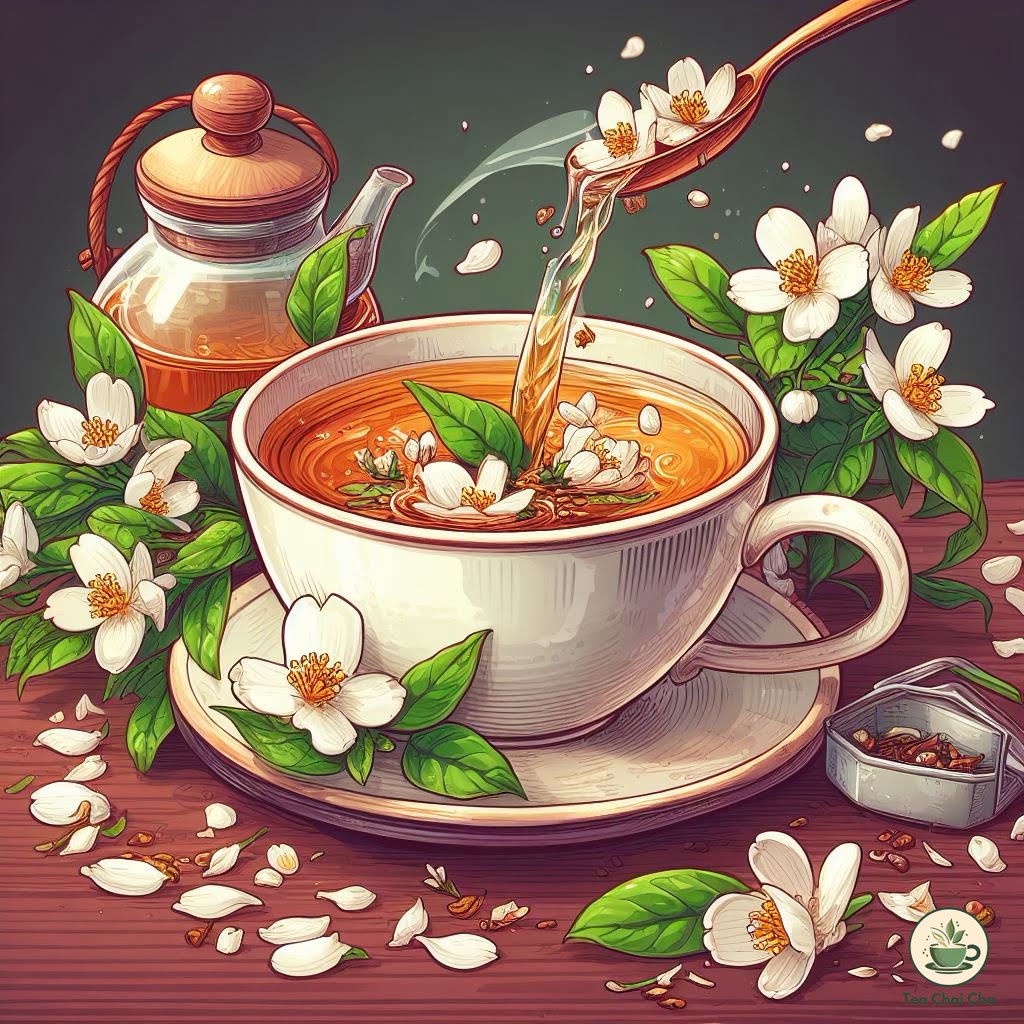
6 Teas That Taste like Rose Tea
Love the flowery and delicate taste of rose tea but want to explore more such herbal teas?
Here’s what I have for you!
| Herbal Tea Type | Flavor Profile | Aroma | Sweetness Level | Notable Features |
|---|---|---|---|---|
| Jasmine Tea | Delicate, floral | Fragrant | Mildly sweet | Aroma reminiscent of fresh roses. |
| Lavender Tea | Soothing, herbal | Gentle | Mildly sweet | Calming with subtle floral notes. |
| Hibiscus Tea | Tangy, tart | Vibrant | Slightly tart | Unique red hue and floral undertones. |
| Chamomile Tea | Mild, earthy floral | Subtle | Mildly sweet | A gentle, calming floral experience. |
| Osmanthus Tea | Apricot-like, fruity | Pleasantly fruity | Subtle sweetness | Unique apricot-like floral notes. |
| Chrysanthemum Tea | Mild floral, earthy hints | Mellow | Mildly floral | Offers a milder floral experience. |
1. Jasmine Tea
If you’re looking for a tea with floral notes similar to rose tea, try jasmine tea.
It carries a fragrant and delicate floral aroma, much like roses.
The taste is subtly sweet and soothing, making it a close match to the gentle flavor of rose tea.
2. Lavender Tea
Lavender tea offers a soothing herbal alternative with a touch of floral elegance.
It has a gentle, aromatic profile that parallels the mild, floral notes found in rose tea.
The taste is calming and can be a delightful substitute.
3. Hibiscus Tea
For a tangy and slightly tart floral tea, hibiscus is a viable option.
While it’s not as sweet as rose tea, it shares floral undertones and a vibrant reddish hue.
Hibiscus tea‘s unique flavor can be an acquired taste for some.
4. Chamomile Tea
Chamomile tea, with its mild and earthy floral notes, offers a calming experience.
While it doesn’t precisely mimic rose tea’s sweetness, it’s an excellent choice if you appreciate gentle floral nuances in your tea.
5. Osmanthus Tea
Osmanthus tea provides a distinctive apricot-like floral taste.
It’s a lesser-known option but boasts a pleasant and slightly fruity floral profile, reminiscent of rose tea, making it worth exploring if you’re looking for variety.
6. Chrysanthemum Tea
Chrysanthemum tea presents a milder floral flavor with a hint of earthiness.
It’s not as sweet as rose tea but offers a floral essence that may appeal to those seeking a different floral tea experience.
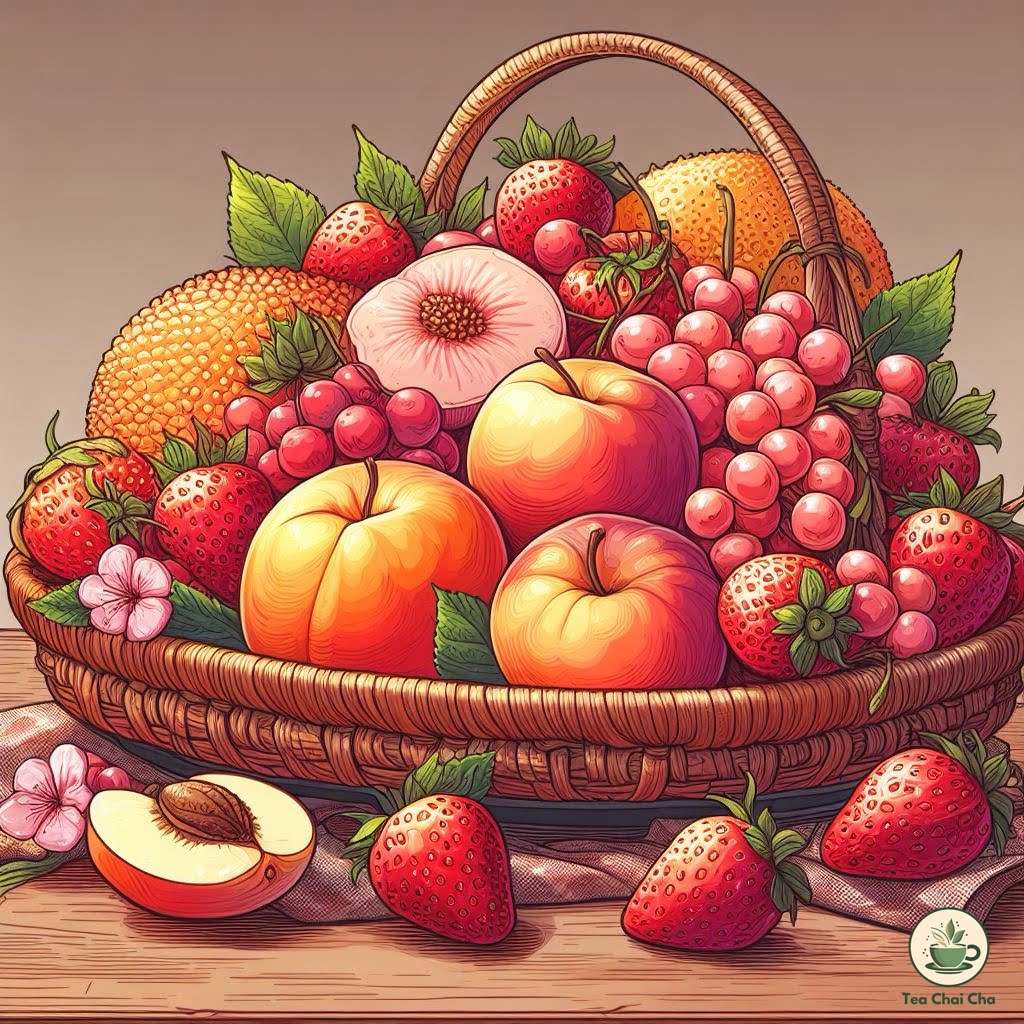
What Flavors Pair Well with Rose Tea
Want to introduce this rose tea to your friends but don’t know which dishes to serve it with?
I got your back here as well!
Let’s learn about some of my favorite picks!
1. Fruity Delights
Rose tea pairs wonderfully with fruit-based dishes.
The floral notes of rose tea complement the sweetness of fruits like strawberries, peaches, and lychee.
Enjoy a refreshing fruit salad or a berry-infused dessert alongside a fragrant cup of rose tea.
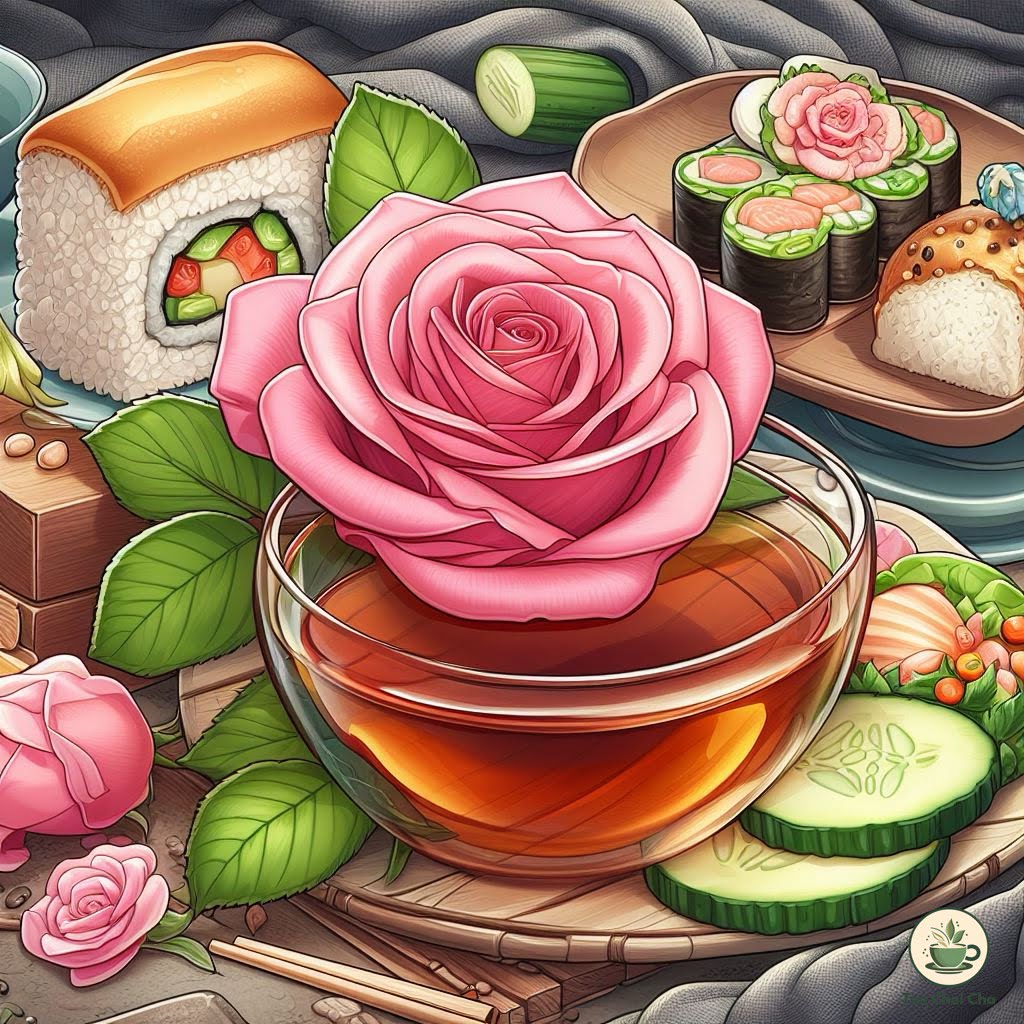
2. Light and Savory
Opt for light, savory dishes to accompany your rose tea.
The delicate, floral taste of the tea pairs well with foods like cucumber sandwiches, sushi, or a light salad.
These choices won’t overpower the subtle flavors of the tea.

3. Sweet Treats
Indulge your sweet tooth with rose tea by pairing it with desserts like rosewater-flavored pastries, macarons, or even a simple vanilla cake.
The soft, floral essence of the tea harmonizes with the sweetness of these treats.
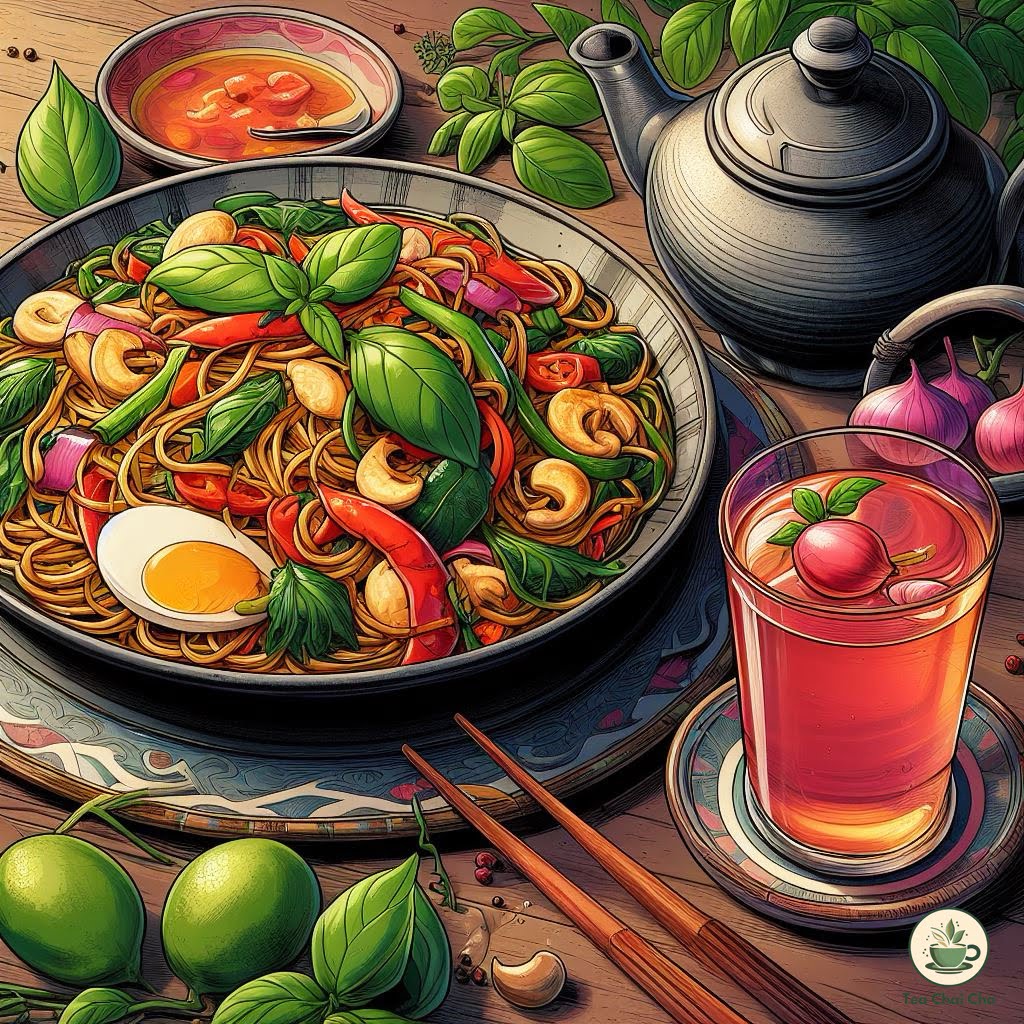
4. Spicy and Exotic
If you’re feeling adventurous, try pairing rose tea with spicy or exotic dishes.
The floral notes can provide a pleasant contrast to the heat of spicy cuisines like Indian or Thai.
Consider enjoying your rose tea alongside a spicy curry or a fragrant Thai basil stir-fry.
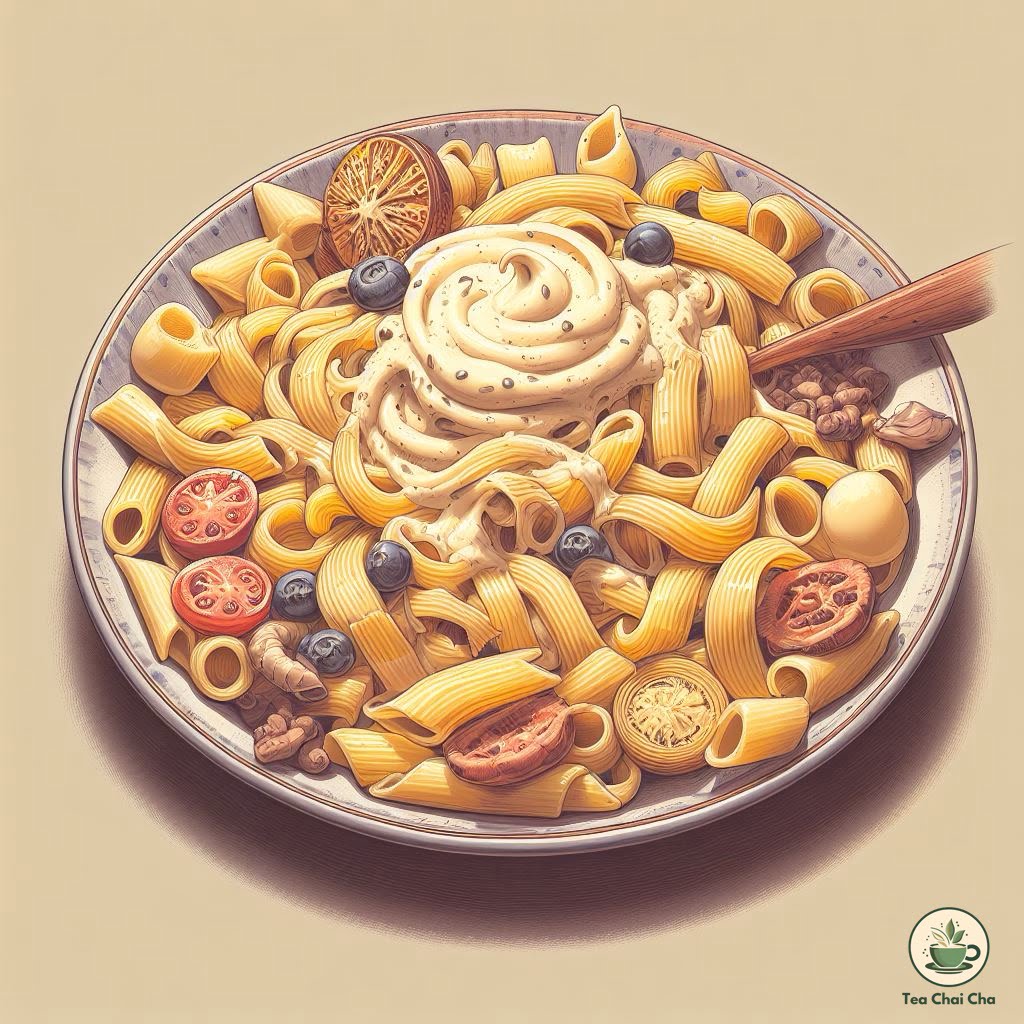
5. Creamy Elegance
For a touch of luxury, complement your rose tea with creamy foods.
Savor it with scones and clotted cream, a velvety custard, or even a rich, creamy pasta dish.
The creaminess balances the floral aroma of the tea.
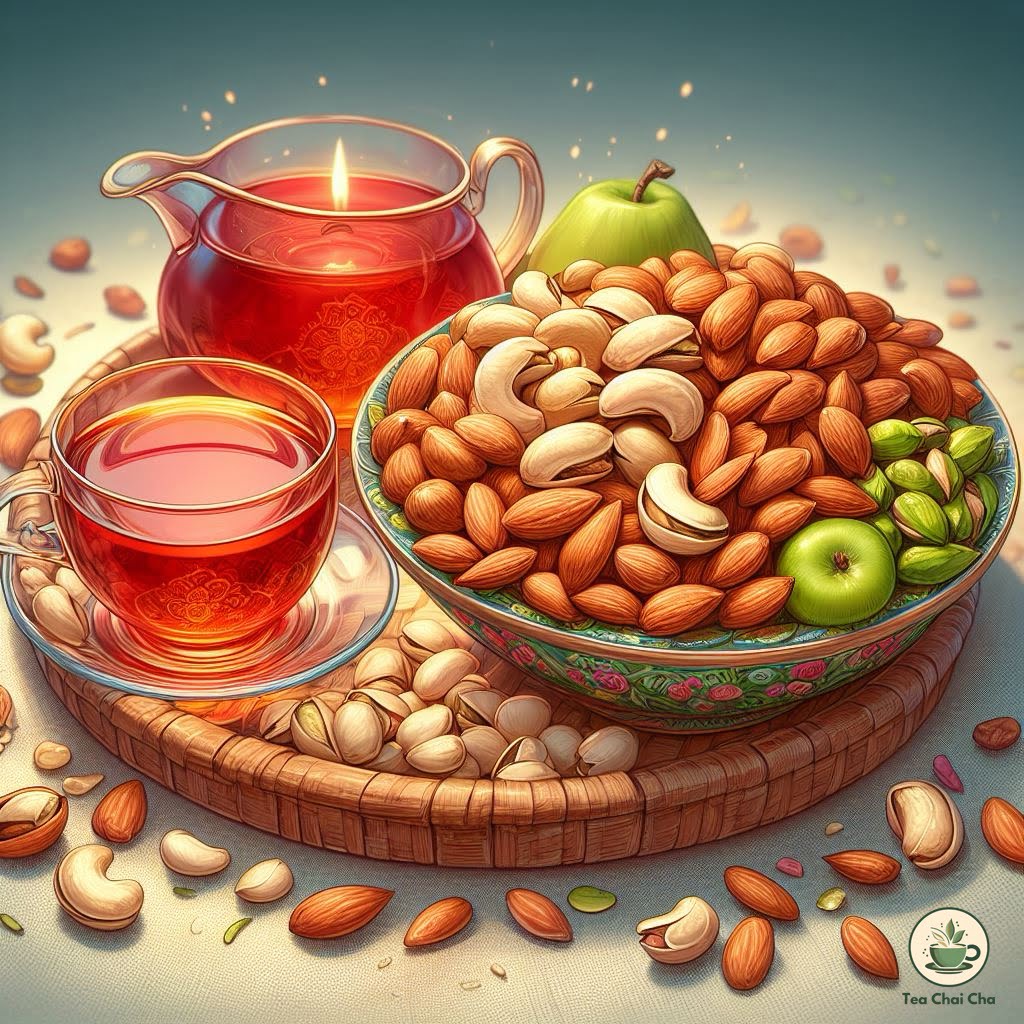
6. Nutty Goodness
The nutty undertones of rose tea make it a great match for nut-based foods.
Almonds, pistachios, or cashews are excellent choices to enhance your tea-drinking experience.
You can snack on roasted nuts or enjoy them in a nutty dessert.
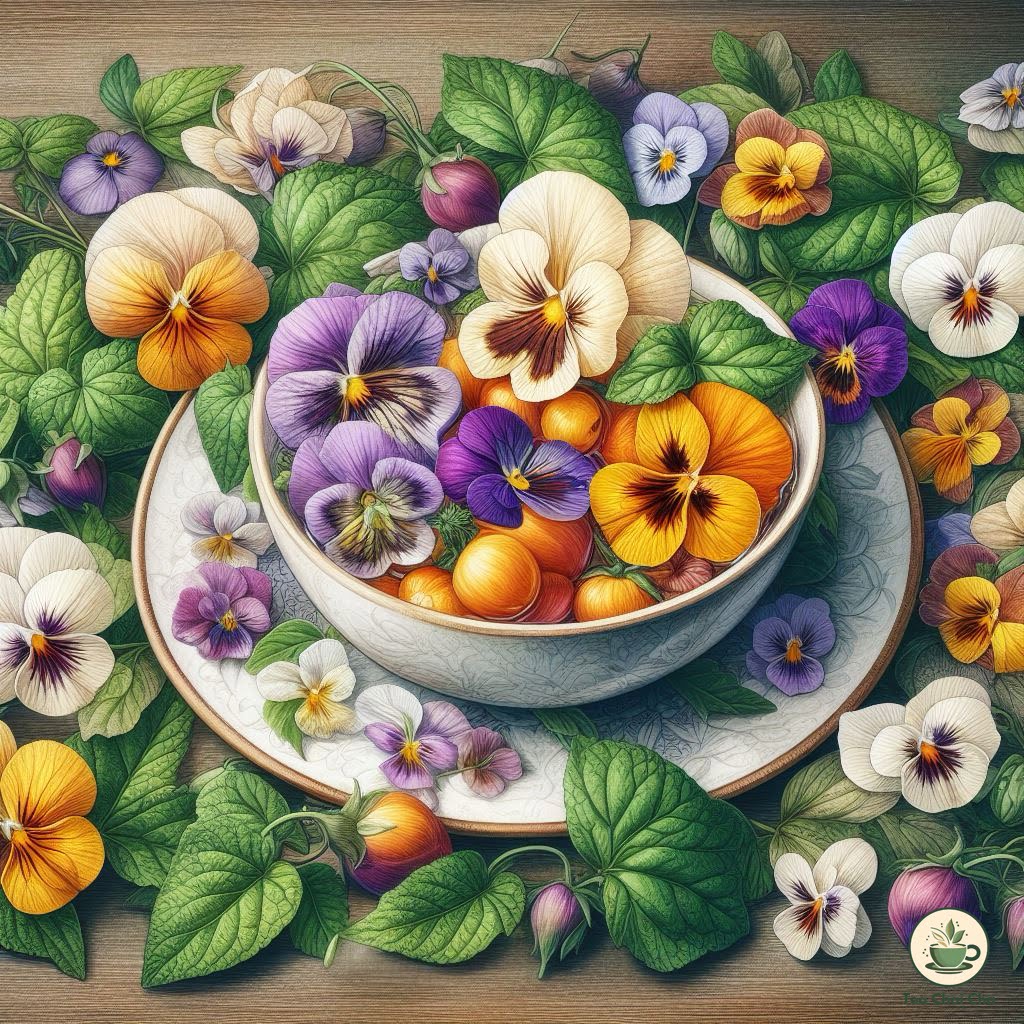
7. Floral Harmony
To emphasize the floral theme, pair your rose tea with edible flowers.
Think about floral salads with edible blossoms like violets, pansies, or nasturtiums.
The combination of edible flowers and rose tea creates a beautifully harmonious dining experience.
Have questions? I’d love to connect with you below!
